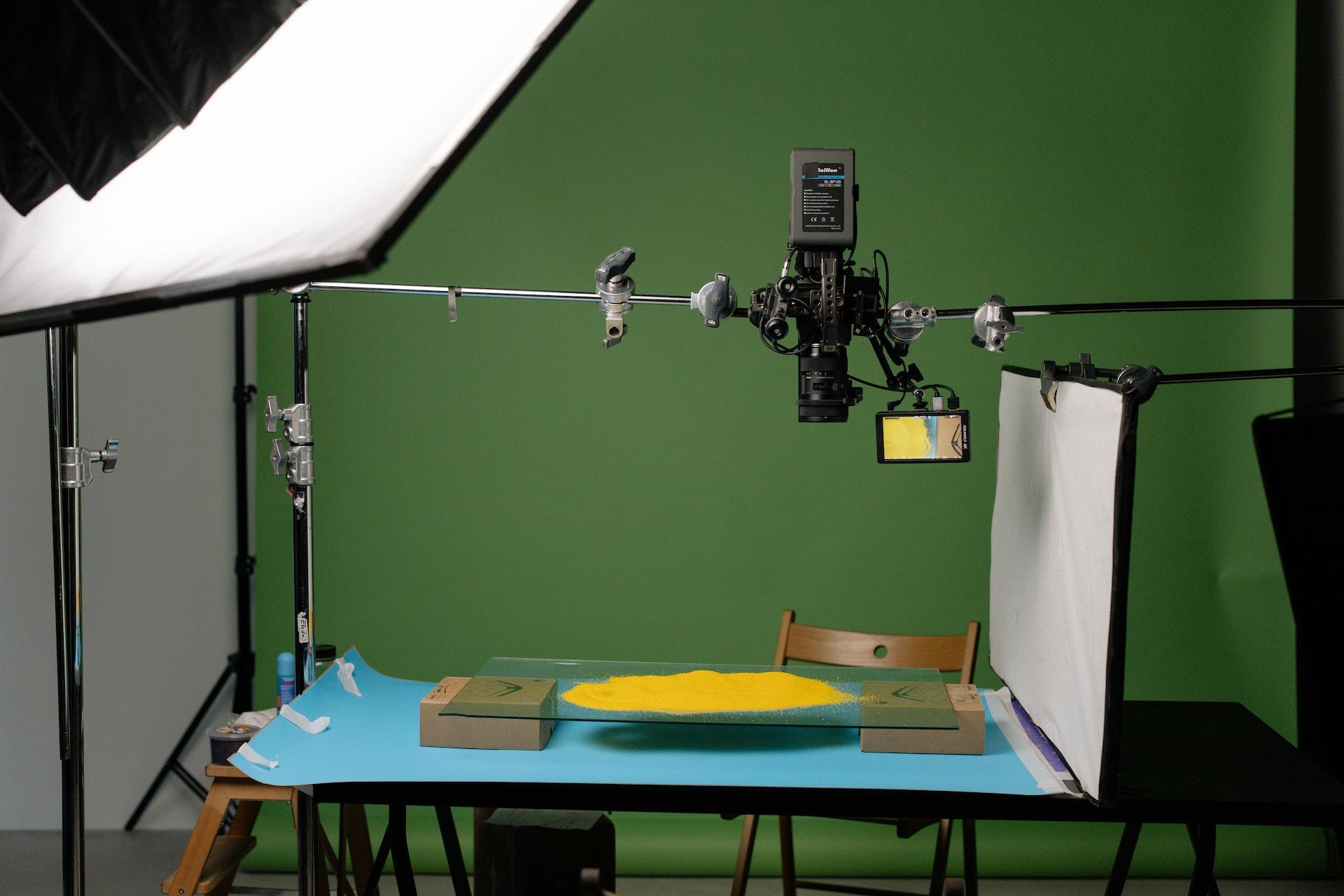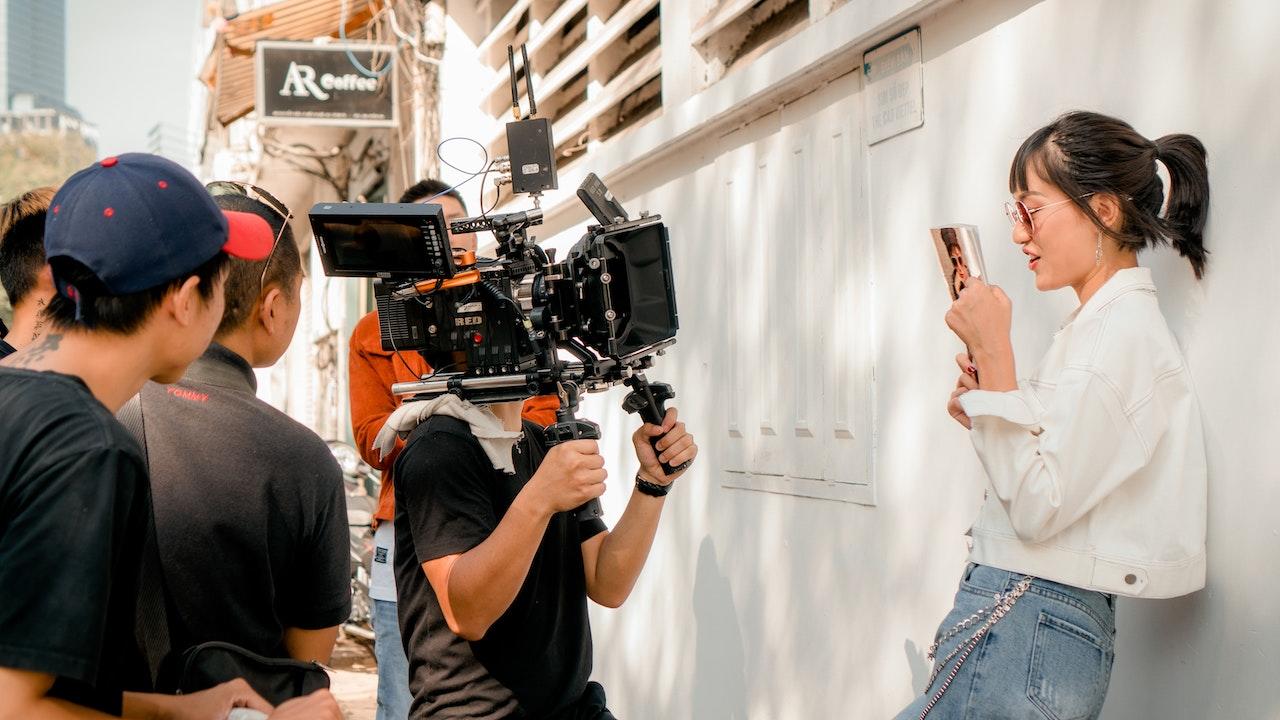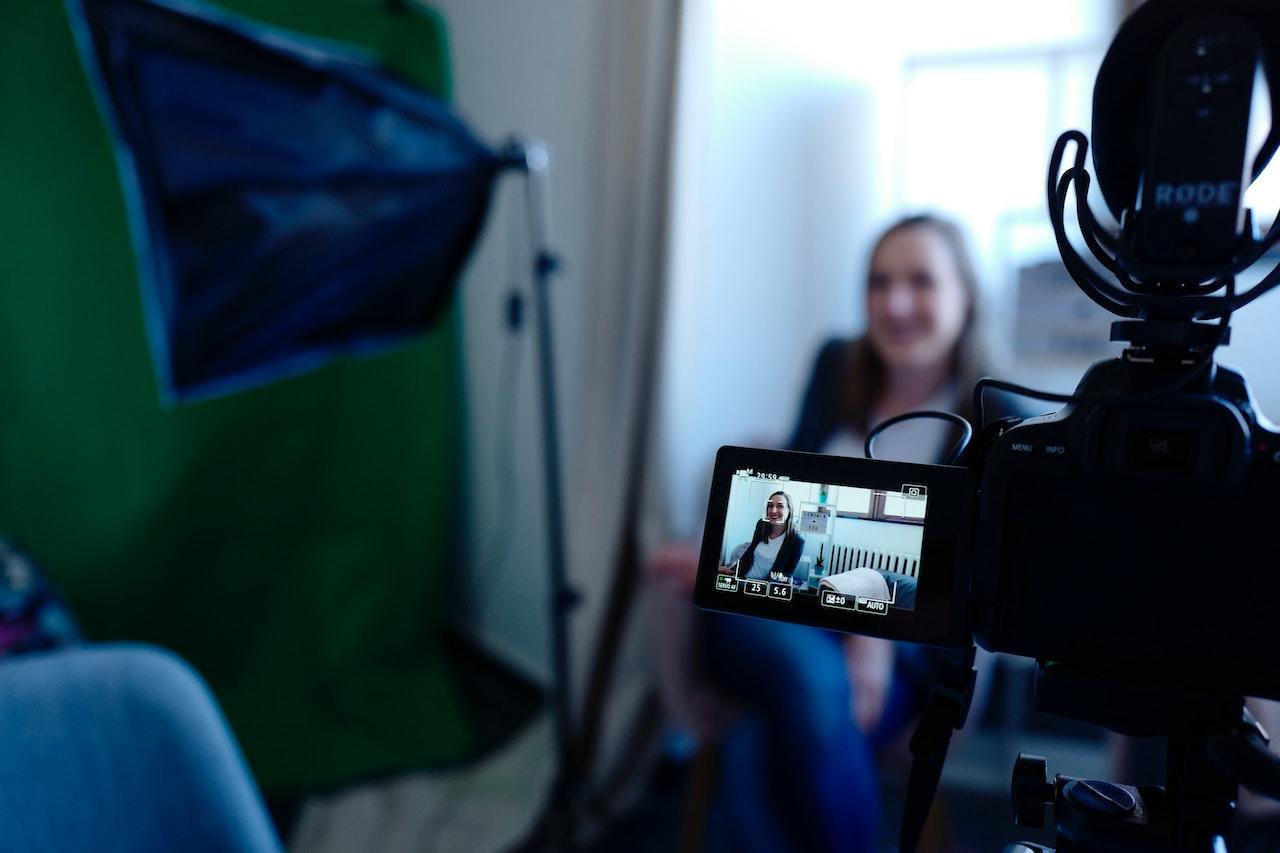Commercial videography is a growing industry. Gone are the days when most films were made for artistic purposes, and these days there is a whole raft of corporate video varieties that have uses in loads of industries. From making video advertisements to selling properties to training videos for staff.
In this guide, we're going through some examples of commercial videography as well as the skills required to work in this field. A lot of corporate videographers are working in this field along with producing their own artistic projects, and with more videos published now than ever before, it is certainly a viable career move.

What is Commercial Videography?
Commercial videography, often described as corporate video production, can be described as any type of video that isn't made for artistic purposes.
This can vary from movies that show someone a virtual tour of a property, to 360-degree videos of a new product like a car, through to coverage of events and training videos. We've explained more about some of the types of corporate videography below.
Why is this type of videography so popular? Well, it has been shown in many studies that video is an incredibly effective and convenient way to communicate. This means it has far more uses than just creating movies or music videos, it can be used to get a message across. Many of us may even receive advertising newsletters that contain videos.
The Role of a Commercial Videographer
The role of a commercial videographer can be extremely varied, and it can differ a huge amount from those who are just working in the creative industries, such as cinematographers.
Commercial video professionals may have to take on a lot of the roles involved in the production of video. There are three main phases that video production will go through:
- Pre-production. This includes all of the aspects of planning including scripting and storyboarding. While this is almost always used for making creative projects, it is not always part of the process when making commercial videos. For instance, when covering an event.
- Production. This is the video shoot itself including all that goes with it, such as sound recording. While a large-scale Hollywood production may involve lots of big teams, a lot of corporate video production services may be small teams of people creating ads, testimonials, and other types of videos.
- Post-production. This is the process of editing and adding things like sound effects and special effects. Post-production may also include adding still images and other footage, such as stock footage.
A commercial videographer may well need to have a knowledge of all of these different aspects of video and video editing. In a smaller team, more of the roles may be covered by each of the individuals involved.

Types of Commercial Videos

We should start this section by saying that there are so many different types of commercial videos. To list them all would take an incredibly long time. We have covered a lot of these within our recent post on types of videography services. Below are just a few ways of making a corporate video and the types of video that can be created.
Explainer Videos
Explainer videos are a handy way to show off new features or how a product works. They are often filmed to show things like applications and how they work. They can also show products and demonstrate what it does and how it is used. Some explainer videos are as simple as a film of someone talking to camera.
Tutorial or Training Videos
Vital for things like staff training but also used for other purposes like onboarding employees, or creating training materials for schools and universities. Training videos may be a part of a qualification.
Advertisements
Ads have their own level of creativity but they are generally considered to be corporate videos. An ad is a way to promote a product, and as you will know from watching YouTube and television, some are very direct and to the point, and others are a bit more abstract.
Testimonials
Testimonial videos are a great way for companies to show the sort of services they provide and how happy their other customers are. These videos are often as simple as filming somebody talking about their experience with a company.
Behind the Scenes
Many businesses have some very interesting processes, and this means that videos of behind-the-scenes are very interesting. For example, if you have a manufacturing process and want to show users how something is produced.
As you can see from the list above, there are an incredible number of uses for corporate video, and this list is just a taste of the sort of videos that might be required.
A Growing Video Industry

"The global film and video market reached a value of nearly $234.9 billion in 2020, having increased at a compound annual growth rate (CAGR) of 2.4% since 2015. The market is expected to reach $318.2 billion by 2025, and $410.6 billion by 2030."
BusinessWire.com
The truth is that there has never been a better time to get into videography. While in the photography industry we are seeing a lot of amateurs getting their hands on the photo equipment and giving it a go. This is not so easy with corporate video production, and there are more moving parts (literally) in the world of video.
the growth in the industry means that there are plenty of opportunities for people to start their own production companies, whether you're shooting corporate videos or wedding videos. Plus, it's easier to get involved in training courses and learn how to make videos.
With the growth of the internet, companies have their own platforms to share videos and aren't reliant on getting airtime. Anyone can send videos to their employees or potential customers with ease.
Corporate videography can be aimed at much smaller businesses, it doesn't matter if they don't have a huge budget or platform. Videos can be circulated on YouTube as well as on social media such as Facebook. It's clear to see why the industry is growing so quickly.
Becoming a Corporate Videographer
Often, the sort of people who are going to work in this field needs to be self-starters. You may be able to work for a corporate video production company, but an awful lot of the corporate video work is done by freelancers or those that have started their own corporate video service.
Arguably, the most important tool in the arsenal of a videographer is a great portfolio. Breaking into the industry means creating a portfolio and a body of work that you can show potential employers and clients.
Education in the world of videography can still be very helpful, of course, and there are a number of courses out there in subjects like media studies, and even degrees in Film Production. The decision to study towards a career in film or video can start very young, with a lot of people realising they would like to study media as early as in their high school days. Many schools offer GCSEs in Media Studies which may have modules that cover video production.
Whether you are looking to retrain or you are looking for help for a young person working on their media qualifications, tuition can be an excellent solution. At Superprof, you will find a huge number of tutors who are experienced in the industry and can work with you to teach you aspects of video production such as:
- The use of equipment such as camera gear
- How to use lighting to create a professional video
- How video editing works and the way you can take footage and create a slick production
- The use of sound and visuals together and how to capture professional sound
- Dealing with clients
There are many skills that the best video production professionals can learn to put themselves in a strong position for a career in video or to start their own media production company.
Commercial Videography – A Good Career Choice?
If you are the sort of person who has a keen eye for detail and good knowledge of technology then videography could be a good choice for a career path. The sort of person who loves to watch films will likely have a decent understanding of video production and some of the steps involved, and there are plenty of ways to learn, through courses in-person or online.
Many of the private tutors on Superprof can make a big contribution to the required skillset and work with both young people and adults to help to learn the ins and outs of commercial videography.
Summarise with AI:















